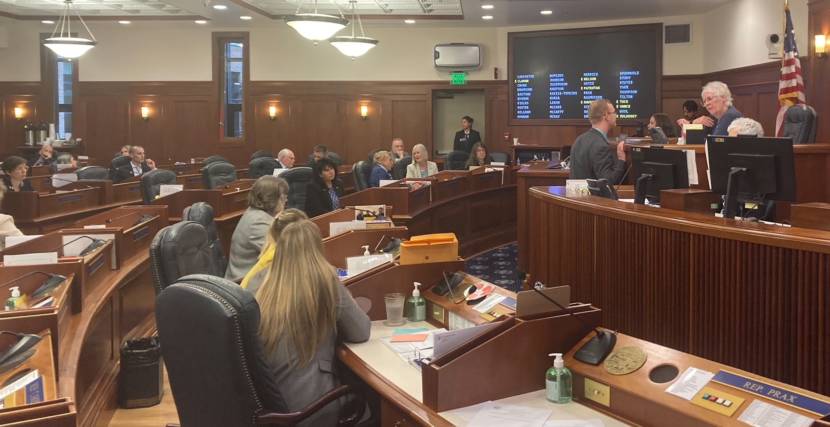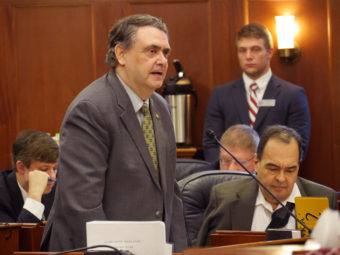
Alaska lawmakers would receive significantly higher salaries but reduced overall compensation under a plan that could go into effect soon. And that’s raising concern with at least some lawmakers from both major parties.
Legislators could see their salaries increase from just over $50,400 now to $64,000 under a preliminary plan adopted on Tuesday by the State Officers Compensation Commission. The commission can recommend changes to lawmaker pay, as well as that of the governor, lieutenant governor, and commissioners of state departments.

Commission Chair Johnny Ellis, a former state senator, voted for the plan. He pushed back against a lower salary increase. He said Alaska legislators outside of Juneau face a unique challenge in maintaining two places to live.
“It’s a hotel room, or it’s an apartment, or it’s a room in a private home in downtown Juneau,” he said. “That’s what we’re talking about. You have to maintain your place of residence in your district and you have a place to live in an expensive Juneau accommodation. That’s the reality of two households.”
The plan would also cut the amount legislators receive to cover their expenses during legislative sessions, known as per diems. The amount paid per day would drop from $293 to a maximum of $100, and legislators would only be reimbursed for documented expenses.
Commission member Lee Cruise voted against the plan. He wanted a lower salary increase and an annual per diem limit to reduce what legislators receive for expenses. He pointed out that Alaska’s legislative salaries are already above the national average.
“Why do they need so much more? No one has explained this to me,” he said. “No one has truly justified this to me. I just want a true justification for why they need more because I don’t believe it’s there; $50,000 is a lot of money.”
Alaska legislators would move from having the 12th-highest salaries to the ninth-highest.
But the overall amount they are paid would likely go down, compared to what they’ve received over the past 12 years. That’s because combined salaries and per diems have averaged nearly $80,000 over that period.
Legislators from both parties expressed concern about the potential change to per diems.
Juneau Democratic Rep. Sara Hannan doesn’t receive per diems, since the commission eliminated them for local legislators before she was elected.
But she’s concerned that the proposed maximum won’t cover hotel bills that can be well over $200 per day during the cruise ship season.
“So $100 per day — if it were the top season in the summer — that doesn’t get you a room anywhere, let alone any meals,” she said. “And we do need to cover the cost of people having to live away from their workstations.”
Wasilla Republican Rep. David Eastman opposes the changes. He said it would reward lawmakers who miss session days since the salaries would be higher while they would receive less for each day in Juneau. And it would make it harder for legislators like him with families with children to cover their costs.
“Before COVID, my family would always come with me to Juneau,” he said. “I have four small kids and it was important for us as a family to spend that time together. But with this new per diem policy, that basically prevents families like mine from coming with me to Juneau.”
The commission is scheduled to decide whether to adopt the plan as a set of final recommendations on Jan. 18. Under state law, they would go into effect unless the Legislature votes to block them.
Eastman said he doesn’t expect there will be enough votes in the Legislature to block the changes.


